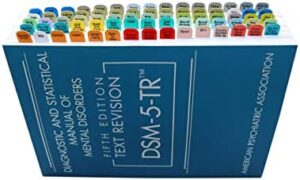 This week we turn our sights to a few disorders that may make it into the diagnostic manual upon its revision.
This week we turn our sights to a few disorders that may make it into the diagnostic manual upon its revision.
The first is one that I know I have very badly. It’s being called “PBD,” or “Pushback Disorder.” PBD usually manifests when parents come in with theory upon theory as to why something is taking place.
Snippets of conversation reveal PBD.
Parent: “My child has ‘ADHD,'” so that explains why he was rude to the teacher.”
Rapidly my PBD comes out – “How do you know the child has ADHD and that’s the root of the rudeness?”
The parent then talks about the pediatrician diagnosing the child based on the Vanderbilt Scales and my PBD goes into high gear. “What about the reading skills? Anxiety? Social relationships? Shouldn’t these and other things be considered before concluding ADHD is the entire story?”
The second disorder is one that is showing up in my office a great deal – IWWIWD (i.e., “I Want What I Want Disorder”). IWWIWD shows up when the child has a meltdown over something that they don’t want to do, like get off their iPads or phones and start their homework. IWWID is very challenging for parents to manage and often gets misdiagnosed as ADHD.
The final disorder that I hope makes the cut in the new manual is called NBD or “No Backbone Disorder.” Sometimes referred to as “Gumby Disorder,” it is revealed when parents ask the child permission to do something like get ready for bed, but not stated with any clarity or confidence. Language is very revealing of NBD, such as when the parent hesitantly asks the child, “Hey, bud, isn’t it time we got off our phone and got ready for bed? (While fully expecting a full-blown fit from the child who continues playing Roblox on the phone.)
It is important to recognize how these disorders interact with each other and can increase in magnitude. So a bad case of NBD coupled with a child who is showing IWWIWD can lead to lots of school and home issues that often land you in a psychologist’s office.
Just make sure you have the stomach to deal with a psychologist who has a bad case of PBD.
Copyright, Richard Selznick, Ph.D. 2022, www.shutdownlearner.com.
To Contact Dr. Richard Selznick for advice, consultation or other information, email rselznick615@gmail.com.
